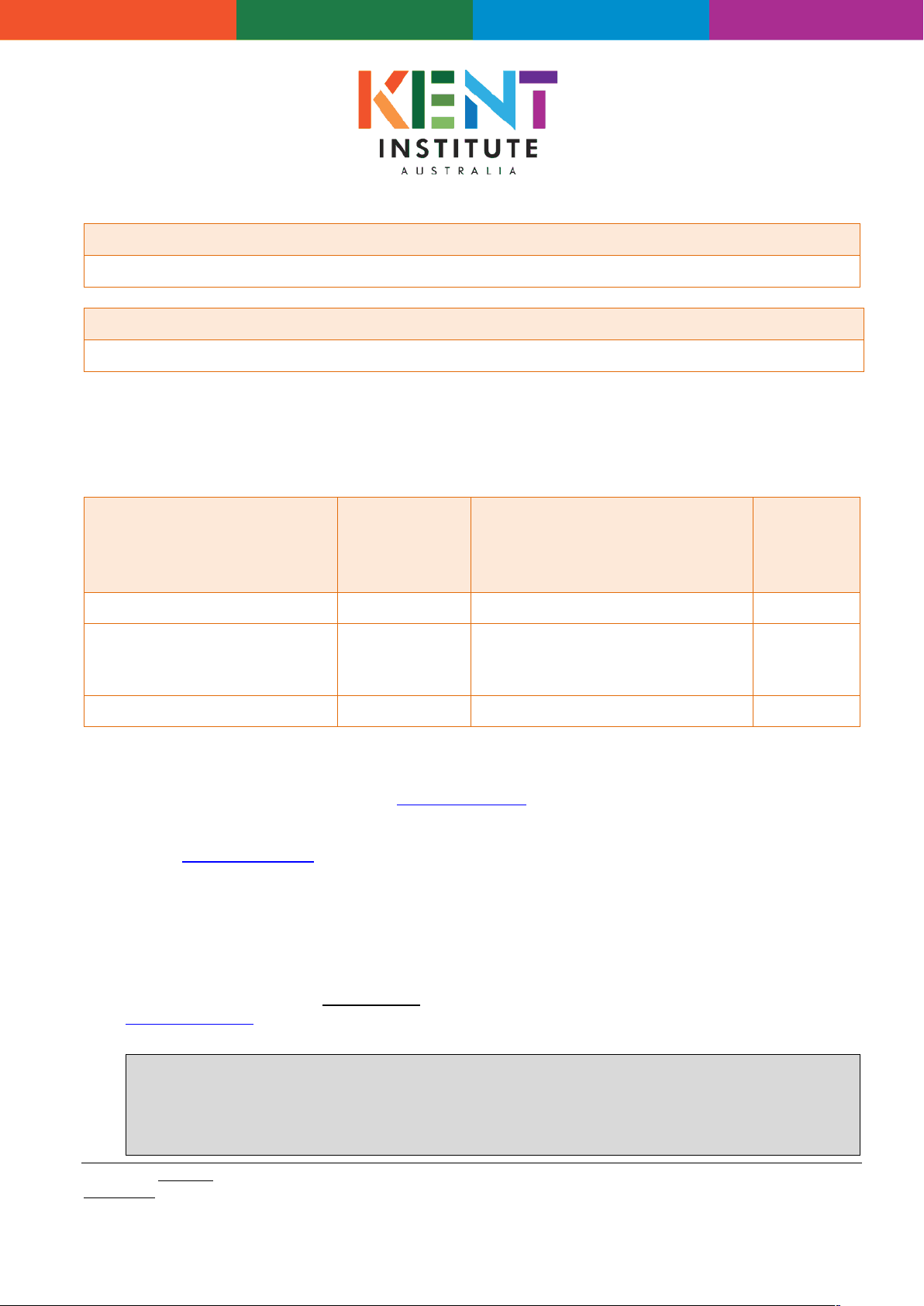
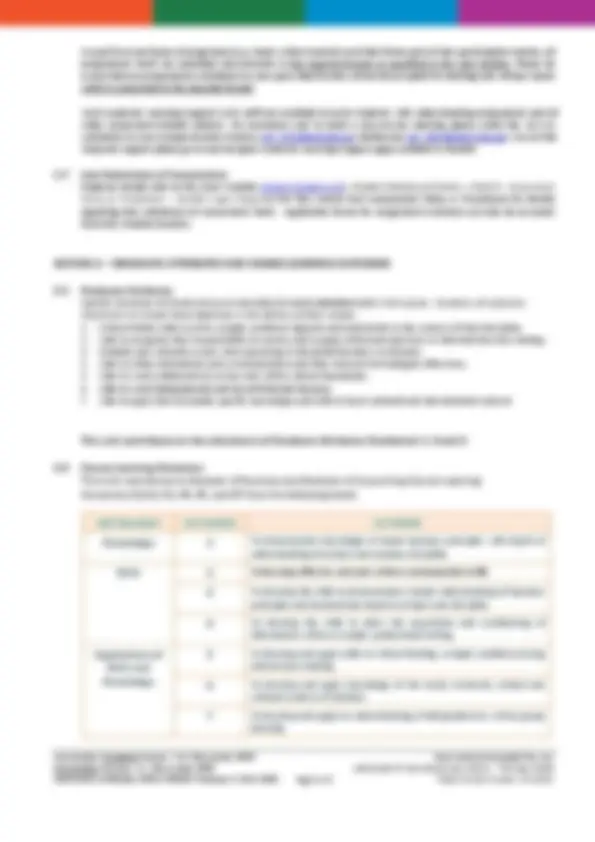
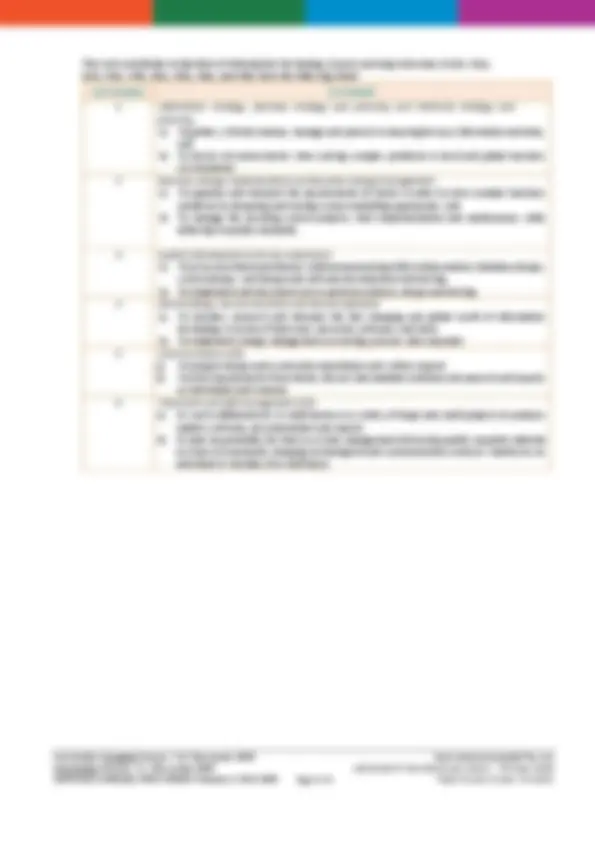
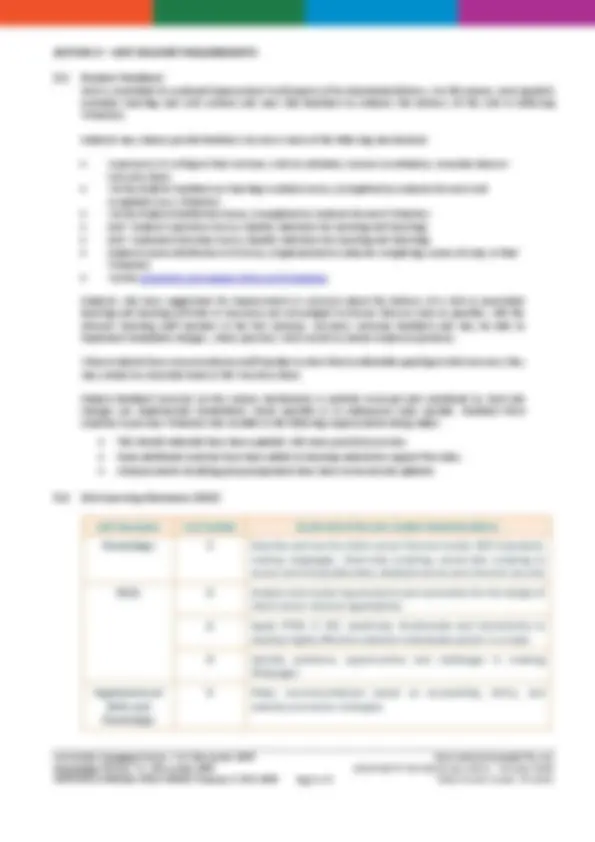
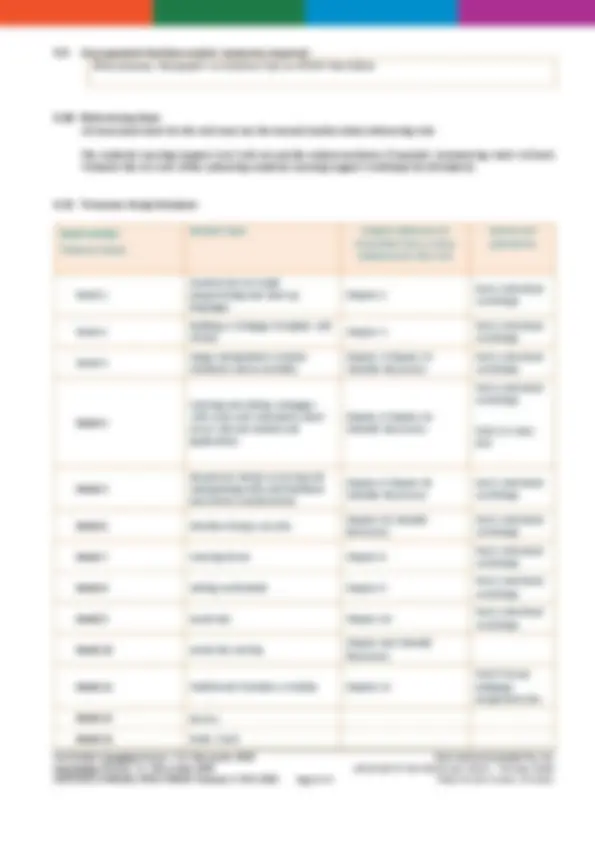
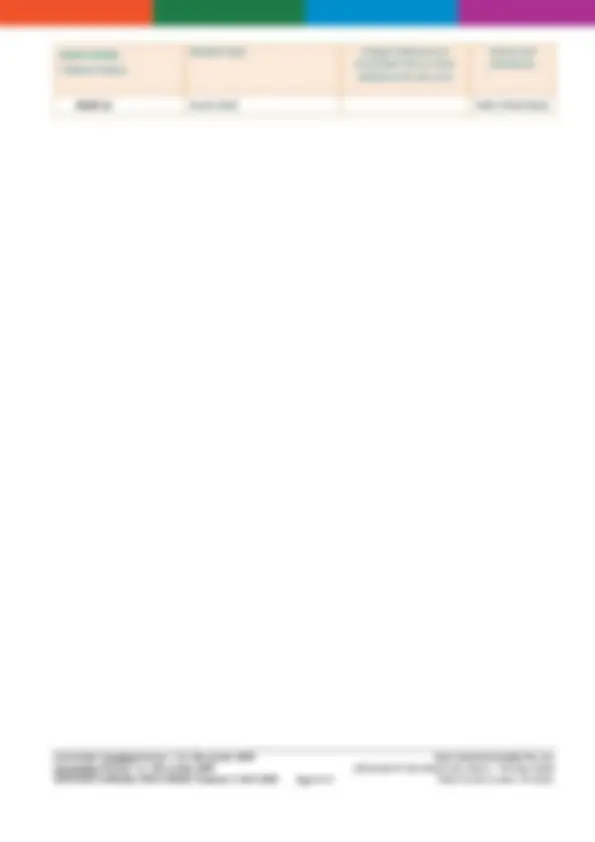


Study with the several resources on Docsity

Earn points by helping other students or get them with a premium plan


Prepare for your exams
Study with the several resources on Docsity

Earn points to download
Earn points by helping other students or get them with a premium plan
Community
Ask the community for help and clear up your study doubts
Discover the best universities in your country according to Docsity users
Free resources
Download our free guides on studying techniques, anxiety management strategies, and thesis advice from Docsity tutors
The unit outline for wpdd202, an internet and static websites unit offered by kent institute australia during trimester 3, 2023. It includes information on academic misconduct policies, grading, assessment marking guides, and learning outcomes. Students are expected to familiarize themselves with the kent student handbook and separate policies and procedures. Late submission of assessments and academic misconduct cases will be thoroughly investigated.
Typology: Assignments
1 / 9

This page cannot be seen from the preview
Don't miss anything!






Unit Outline Template Version: V11 2 November 2023 Kent Institute Australia Pty. Ltd. Unit Outline Version: V1, 2 November 2023 ABN 49 003 577 302 CRICOS Code: 00161E RTO Code: 90458
Associated higher education awards (for example, Bachelor) Duration (for example, one Trimester, full year) Level (for example, introductory, intermediate, advanced level, 1st year, 2nd year, 3rd year) Core or Elective Bachelor of Information Technology One Trimester 1 st^ Year Core Bachelor of Business with a Specialisation in (Information Systems) One Trimester 2 nd^ Year Core Bachelor of Accounting One Trimester 2 nd^ Year Elective
All students should familiarise themselves with the Kent Student Handbook and separate Kent Policies and Procedures located on the Kent Website Kent Website MyKent Student Link> Student Policies and Forms– Student Login Required ) to understand the academic, management, administrative and student responsibilities related to their course of study at Kent. As the Kent Policies and Procedures are subject to regular review, students should regularly log-in to the Kent Website MyKent Student Link to access the current version of the Policies and Procedures related to their course of study. During the Student Orientation Program offered to all new students information is provided giving the location of these documents and reference is made to Policies and Procedures in the Kent Student Handbook.
All students should refer to the current version of the Kent Academic Misconduct Policy & Procedures (Kent Website MyKent Student Link> Student Policies and Forms > POLICY– Academic Misconduct Policy & Procedures – Student Login Required). Academic misconduct includes cheating, plagiarism or other act or omission to act or attempted act engaged in by a student that may result in unfair or unjustified academic advantage to one or more individuals. Cheating means fraud, dishonesty or deceit of any kind in relation to an assessment item. Plagiarism the presentation of work or ideas of others as one’s own without due acknowledgement and referencing. Each student is, therefore, required to acknowledge all direct quotations (irrespective of the
Unit Outline Template Version: V11 2 November 2023 Kent Institute Australia Pty. Ltd. Unit Outline Version: V1, 2 November 2023 ABN 49 003 577 302 CRICOS Code: 00161E RTO Code: 90458 source), ideas, paraphrased writings and statistical information. All students will be made aware of what constitutes academic misconduct through:
Refer to the Kent Assessment Policy & Procedures (Kent Website MyKent Student Link> Student Policies and Forms > POLICY– Assessment Policy & Procedures – Student Login Required): High Distinction 85%-100% Distinction 75%-84% Credit 65%-74% Pass 50% - 64% Fail 0%-49% Conceded Pass May be awarded to students completing their final trimester of study who have passed all other units except for one unit with the final mark of that Unit in the range of 45% - 49%. Supplementary Pass Awarded to students granted a supplementary assessment and successfully completing it by obtaining a result 50% or higher. Absent Fail No assessment task completed
Kent provides guidelines for Assessment Marking to assist students to understand the requirements and standard criteria to be met in order to achieve successful outcomes at the various grade levels for all Kent assessment tasks during their course of study. Designated Kent staff undertaking marking of student assessment tasks apply these guidelines to the grading of all student assessment tasks. All students can access the Kent Assessment Marking Guide via the Kent Website MyKent Student Link> Moodle– Student Login Required. For detailed information on assessment tasks please read the Assessment Briefs available for the Unit of study in the Moodle unit page at my.kent.edu.au.
All assignments must be submitted online in Moodle using the link provided - excluding tutorial work. Assignment submissions can be made multiple times up until the due date to obtain a ‘Turnitin’ similarity check. The last version of the assignment submitted online in Moodle on or before the due date will be considered as the final version of the assignment. A student will be required to electronically acknowledge a declaration as part of the submission of the assignment. Students should keep a copy of the assignment for their own personal records. ‘Turnitin’ is an originality checking and plagiarism prevention service that checks writing for citation mistakes or inappropriate copying. The software checks against its own database or previously submitted work, against academic and non-academic journals and against the content of other websites to identify plagiarism and cheating.
Unit Outline Template Version: V11 2 November 2023 Kent Institute Australia Pty. Ltd. Unit Outline Version: V1, 2 November 2023 ABN 49 003 577 302 CRICOS Code: 00161E RTO Code: 90458 This Unit contributes to Bachelor of Information Technology Course Learning Outcomes (CLOs): #1a), #1b), #3a), #3b), #5a), #5b), #6a), and #6b) from the following listed: CLO Number CLO Details 1 Information strategy, Business strategy and planning and Technical strategy and planning a) To gather, critically analyse, manage and present in meaningful ways information and data, and b) To devise risk assessments when solving complex problems in local and global business environments. 2 Business change implementation and Business change management a) To appraise and interpret the requirements of clients in order to solve complex business problems by designing and testing system modelling approaches, and b) To manage the resulting system projects, their implementation and maintenance while adhering to quality standards. 3 Systems development and User experience a) To act as an ethical practitioner while demonstrating skills in data analysis, database design, system design, web design and software development and testing, b) To implement and document user experience analysis, design and testing. 4 Service design, Service transition and Service operation a) To monitor, research and interpret the fast changing and global world of information technology in terms of hardware, networks, software, and tools, b) To implement change management in existing systems when required. 5 Communication skills a) To prepare design and system documentation and written reports b) To elicit requirements from clients, discuss intermediate solutions and present oral reports as individuals and in teams. 6 Teamwork and Self-management skills a) To work collaboratively in small teams on a variety of large and small projects to produce models, software, documentation and reports b) To take responsibility for their own time management delivering quality required material on time in dynamically changing technological and communication contexts whether as an individual or member of a small team.
Unit Outline Template Version: V11 2 November 2023 Kent Institute Australia Pty. Ltd. Unit Outline Version: V1, 2 November 2023 ABN 49 003 577 302 CRICOS Code: 00161E RTO Code: 90458
Kent is committed to continual improvement in all aspects of its educational delivery. For this reason, Kent regularly evaluates teaching and Unit content and uses that feedback to enhance the delivery of the Unit in following Trimesters. Students may choose provide feedback via one or more of the following mechanisms:
AQF Descriptor ULO Number By the end of the unit, student should be able to
Unit Outline Template Version: V11 2 November 2023 Kent Institute Australia Pty. Ltd. Unit Outline Version: V1, 2 November 2023 ABN 49 003 577 302 CRICOS Code: 00161E RTO Code: 90458
1 ,4,5 3, 5 1 a 3a 3b
Task 1 – Individual Workshops Weekly laboratory workshops to develop skills in the practical aspects of designing, developing and testing effective and secure websites to international standards as ethical practitioner. Weeks 2 - 9 20% 1,4,5 3, 4, 5 1 b 3a 3b
Task 2 - In-Class Test Individual Students will be given individual theory questions to complete in class. Time given: 1 hour Week 4 10% 1,4,5 4, 5, 7 1 a 1 b 3a 5 a 5 b 6a 6b
Task 3 – Group Assignment A written assignment undertaken in groups of three or four students in the form of a webpage design, implementation, test and evaluation as ethical practitioner. The website must be developed for a global audience. Students will be assessed as a team. Week 11 20% 1,4,5 4, 5 1a 3a
Task 4 - Final Exam Closed book exam Time given: 2 hours Week 14 50% Note: Examples of types of assessment tasks include: assignments; examinations; group projects; online quiz/tests; presentations; work-based projects; and reflective journals. Ensure that details of the types of assessment tasks are included such as specific topics, duration/length/word limit of assessment and any specific formats.
Minnick, J (2017). Web design with HTML5 & CSS3: Comprehensive Shelly Cashman Series. (8th ed.). : Cengage Learning. ISBN 9781305578166
Unit Outline Template Version: V11 2 November 2023 Kent Institute Australia Pty. Ltd. Unit Outline Version: V1, 2 November 2023 ABN 49 003 577 302 CRICOS Code: 00161E RTO Code: 90458
All Assessment tasks for this Unit must use the Harvard (author-date) referencing style. The Academic Learning Support (ALS) Unit can provide student assistance if required. Commencing Week 3 of each Trimester the ALS Unit will be conducting Academic Learning Support Workshops for all students.
Week Number Trimester Break: Module Topic Chapter Reference in Prescribed Text or other Reference for this Unit Events and submission Week 1 Introduction to simple programming and mark up languages Chapter 1 Task 1 Individual workshops Week 2 Building a Webpage Template with HTML Chapter 2 Task 1 Individual workshops Week 3 Image manipulation Website standards and accessibility Chapter 3 Chapter E (Moodle Resources) Task 1 Individual workshops Week 4 Creating and editing webpages with styles and stylesheets Client server internet models and applications Chapter 4 Chapter E (Moodle Resources) Task 1 Individual workshops Task 2 In-class test Week 5 Responsive Design Accessing and manipulating data and databases and ethical considerations Chapter 5 Chapter E (Moodle Resources) Task 1 Individual workshops Week 6 Interface design, security Chapter E6 (Moodle Resources) Task 1 Individual workshops Week 7 Creating forms Chapter 8 Task 1 Individual workshops Week 8 Adding multimedia Chapter 9 Task 1 Individual workshops Week 9 JavaScript Chapter 10 Task 1 Individual workshops Week 10 JavaScript, testing Chapter E10 (Moodle Resources) Week 11 Publish and Promote a Website Chapter 11 Task 3 Group webpage assignment due Week 12 (^) Review Week 13 Study Week